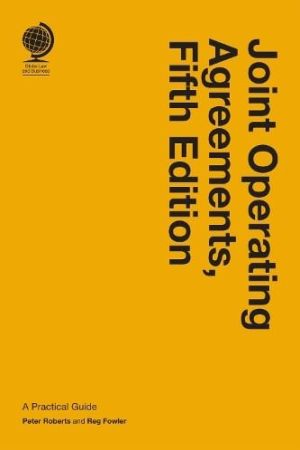
This fifth edition of the leading work on joint operating agreements (JOAs) provides a practical examination of the provisions of a typical JOA, with a particular focus on the critical issues of scope, the operator’s role, joint and exclusive operations, default, transfers and decommissioning. There is also practical analysis of the key issues which apply to the operation of any JOA and the positions which are taken in the leading industry model form contracts. The perspectives of the operator and non-operator are addressed, along with consideration of the domestic and international standards applicable to petroleum projects and a comparison of JOA terms between production sharing and licence concession regimes.
New features include:
Anyone engaged in the development of worldwide exploration and production projects will find Joint Operating Agreements: A Practical Guide, Fifth Edition an essential addition to their professional library.